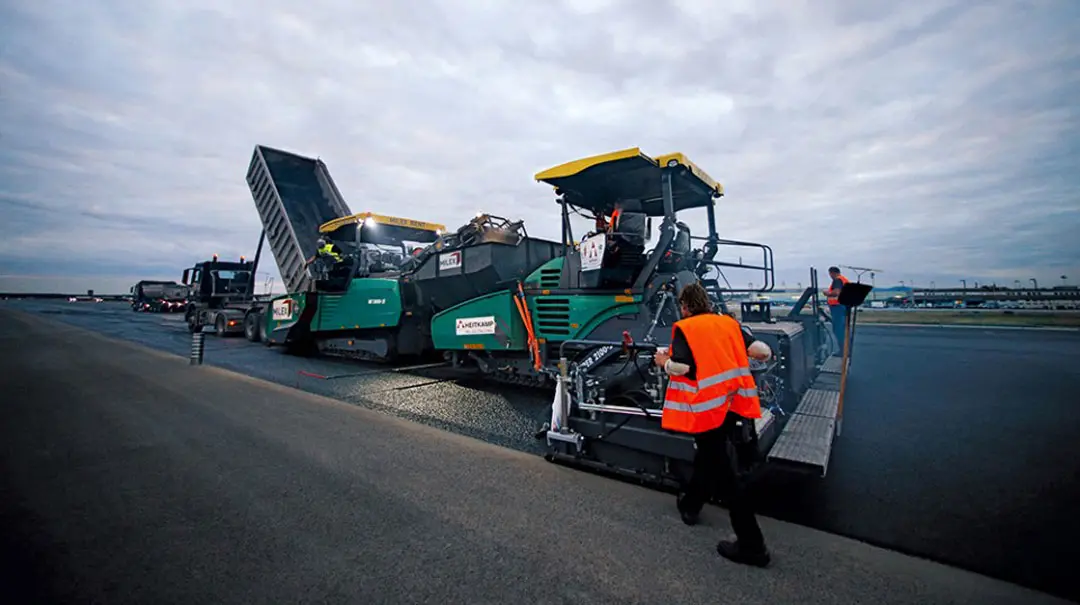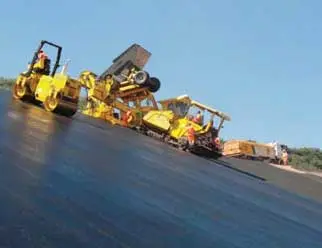Asphalt Advantages and Applications
Asphalt: The Best Choice Pavement
Asphalt or bituminous pavements offer major benefits to road users, road authorities and the environment alike. They offer cost efficient, low noise and comfortable roads that are safe, durable, easily maintained and 100% reusable at their end of life.
Smooth and Comfortable
Asphalt pavements are smooth and comfortable for long journeys, due to minimal construction joints, noise absorbing texture and low rolling resistance, which can also contribute to lower fuel consumption. Air travellers also benefit from smoother landings on asphalt runway surfaces.
Cost-efficient
Asphalt pavement construction has lower initial set up costs than alternatives, is faster and easier to maintain and causes less disruption to the public, with resulting cost savings. It also has a very high residual value due to its ability to salvage the binder component and to reuse the entire material for its original purpose.
Safe
Bituminous mixtures can generate texture to improve the friction and efficient drainage required to provide high skid resistance levels, especially on wet Irish roads. Road markings stand out better on the black asphalt surface, while coloured asphalt can be used for lane delineation and traffic management in areas requiring additional safety measures, such as outside schools, cycle lanes, bus lanes and bus stops.
100% Reusable
Asphalt is one of the most reused construction materials in the world. It is unique in that both the aggregate and the binder components can be reused to perform their original function. Very high levels (> 80%) of addition of Reclaimed Asphalt (RA) to new mixes can be technically achieved where local regulations allow or require.
IAPA’s position on the treatment of RAP in Ireland is set out here. (pdf download)
Flexible
Asphalt pavements are often referred to as ‘flexible pavement’ The flexibility of the material reduces the risk of cracking, and the impact of freeze/thaw extremes of temperature is minimised by the elasticity of bitumen in the material. There is also flexibility in the design options available to address the various layer thicknesses and types of materials required for a wide variety of road types and other applications.
Green Pavement
The carbon footprint of asphalt production can be significantly reduced through increasing the allowable % addition of Reclaimed Asphalt (RA) to new mixes and developing lower temperature Warm Mix technology. A production temperature reduction of 25degC can result in fume emission reduction of about 75%.
Learn more about all of the above at https://eapa.org/advantages-of-asphalt/
Asphalt Advantages
The European Asphalt Pavement Association (EAPA) list a total of 88 advantages of asphalt pavement under the following headings:

Asphalt Applications
Widespread Use in Ireland
The most common use of Asphalt is in the transport and recreation sectors
- Transportation: Roads, airport runways and taxiways, car parks.
- Recreation: Greenways and cycle tracks, running tracks, tennis courts, playgrounds, footpaths and walkways.

Other Applications
Asphalt is also used in a variety of applications in other sectors.
- Agriculture: Barn floors, greenhouse floors, silage pit floors...
- industrial: Ports, industrial estates, work sites, landfill caps...
- Building: Construction (floorings, covered walkways...)

You can learn about all these applications in more detail at https://eapa.org/asphalt-applications/